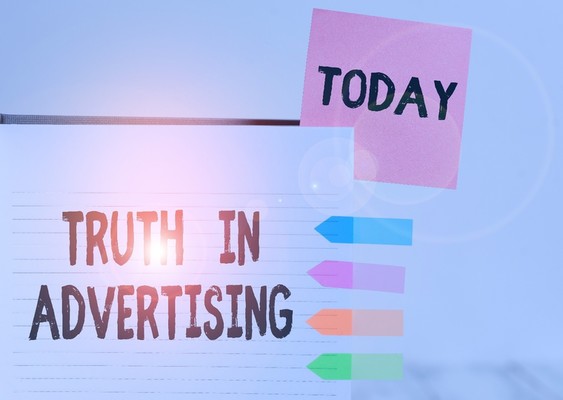
The liberty of speech in the USA is always considered as one of the basic human rights and freedom.
On the other hand, the courts are ruling that the liberty of advertisements, which represents part of freedom of speech, may get control more strictly than any other kind of expression.
Therefore, state governments have the right to control the supply of false or deceptive advertisements, advertisements of illegal products or services, and honest advertisements, if people's interests are in question.
Promotion in the USA is governed not only by country governments but also and mostly by way of self-regulation.
Regulations at the national level federal governments adopt national legislation and enable regulatory agencies to apply them, to produce policies and guidelines, and also to restrain the advertising industry as complete.
The significant regulatory body to the promotion market is that the Federal trade commission (the FTC). Initially, the FTC is made to prevent unfair techniques of competition in trade, however recently its action turned into the customers' protection. Presently the FTC pursues strong law enforcement; represents customers' interests; shares its experience with state and federal legislatures, the U.S. and global government agencies; grows guidelines and knowingly participates in hearings, conferences, and educational applications.
The Bureau of Consumer Protection is eligible, but not restricted, to:
Federal legislator along with the FTC particularly concentrate on the regulation of marketing to kids, advertisements of particular merchandise (e.g, alcohol, tobacco, food, medications, and dietary supplements), online marketing, eco-marketing (selling and sale of green and sustainable products and solutions ) and telemarketing.
Even the FTC (or even the court on the FTC's movement ) may sanction to stop unlawful actions, publish corrective advertisements or disclosures, and impose civil penalties, such as consumer redress and other financial remedies. It needs to get mentioned that the FTC centers on cases that impact significant public interests; each of the person disputes is getting resolved in courts, often with the participation of local or state consumer protection agencies or private groups like the Better Business Bureau.
The FCC controls TV and radio broadcast advertisements by resolving consumer asserts concerning the content and time of advertisements. The FCC also simplifies political programming principles and principles about junk fax marketing. The sanctions, which the FCC may inflict, comprise revocation of the broadcasting permit, imposing a fine or issuing a formal warning, and submitting a court action searching for criminal or civil remedies (as much as imprisonment).
There are a few additional government agencies that regulate the advertising marketplace. By way of instance, Food and drug management (the FDA) grows Advertising Guidances for medication and nutritional supplements; establishes education applications, and simplifies consumer asserts with its Department of Drug Marketing, Advertising, and Communications. Apart from that, Congress has given other government agencies that their ability to research advertising by banks, airlines, insurance companies, common carriers, and businesses that sell commodities and securities.
Regulations in the country and local levels
Marketing is regulated not just at the national level but also by country, city, and county legislators. As an example, state civil and administrative codes, business and professional codes supply grounds for contemplating advertisements unfair, deceptive, or fraudulent.
County and state laws derive from national laws (generally about the Uniform Deceptive Trade Practices Act) and functions by the FTC. In any case, they define these issues as quality, cost, location of origin, or advantages of a service or product, bait-and-switch approaches, disparagement of products, deceptive or misleading comparative cost etc.
If the advertising legislation gets breaks, the customers can file a complaint with the country, county, or town Attorney General or with the state, county, or town Department of Consumer Affairs (visit the full list of those bodies).
Departments of Consumer Affairs also issue licenses that enable individuals and companies to conduct their company (in such areas as medicine, transportation, technology, security and analysis, veterinary, etc.) and create guidelines for making the promotion of these companies. If the licensee violates the recommendations or markets a service with a permit for this, customers can file a complaint with the corresponding Department. Monetary fines are the most popular punishment for this offense.

Self-regulatory Providers
Non-governmental organizations are thinking to become the best regulators of the marketing market. Better Business Bureau (BBB) is among the most influential one of them.
BBB accredits companies, which means that the company meets certification criteria, including a dedication to making a fantastic faith attempt to resolve any kind of customer complaints. BBB criteria include BBB Code of company practices, BBB Standards for Trust, and Code of advertisements. Additionally, BBB is an alternate dispute resolution service that resolves customer complaints together with associations' disputes. These are getting settle with the way of conciliation, mediation, or arbitration. Local BBBs solve several hundred million cases per Year
The self-regulatory strategy created by NARC is a more flexible option to the national and state regulations, allowing to settle disputes among rival advertisers and raises public confidence in the credibility of marketing. These organizations are accountable for reviewing and monitoring national advertisements for truthfulness and accuracy and receiving or initiating, evaluating, exploring, and holding discussions with an advertiser, and resolving questions or complaints regarding the accuracy or truth of national advertisements. These programs are shown to be effective, rapid, low-cost, and personal means to settle a dispute compared to a regular lawsuit.
BBB U.S. and BBB Canada getting combine at the Council of BBB, which is regard as the country's recognized leader in creating and administering self-regulation applications for the company community.
Its members set roughly 80 percent of their entire advertising volume nationally. 4A says that among its most important missions is that the observation of marketing practices and reinforcement of the greatest creative and company criteria for the company community. 4A's members are obligated by its constitution and by-laws, its mission statement, Standards of Creative and practice code. The company collaborates with national, state, and local authorities to realize civic and social objectives, to withstand unwise or unjust laws and regulations, and also to be the primary source of advice and information about marketing.
AAF protects and promotes advertisements in any way levels of government through grassroots actions. The company monitors advertising-related laws at the local, state, and national levels and conducts meetings involving its members and powerful lawmakers. In any case, AAF publishes summaries of their most crucial and controversial issues and addresses them in the U.S. Senate, country authorities, as well as the FTC.
The Association of National Advertisers (ANA) is the top marketing industry's trade association, which protects and advances the interests of both client-side advertising businesses. ANA manages business practices, manages business affairs, and shields advertisers' citizenship rights. ANA has an extremely active part in the legislative, regulatory, and legal balls to guard the interests of the promotion community. After every calendar year, it adopts a Compendium that clarifies its efforts about the extensive assortment of topics (see, i.e. 2010 Compendium of Legislative, Regulatory, and Legal Issues).
They supply a united front in calling Congress and government agencies on advertisement network problems.
The Interactive Advertising Bureau (IAB) is comprised of over 500 major media and tech firms that are accountable for promoting 86% of online advertising in America. IAB educates entrepreneurs, services, media companies, and the broader business community, assesses and recommends standards and practices, areas crucial research on interactive marketing, and protects and promotes its members' interests. Additionally, IAB lobbies Congress and federal administrative agencies, helps manage significant legislative proposals, and participates with the FTC and other agencies to affect prospective enforcement proceedings, possible rulemakings, and public workshops.
In reaction to the FTC's demand for stronger and beneficial self-regulation of online behavioral marketing practices, the biggest media and advertising trade institutions (IAB, 4A's, AAF, ANA, the Direct Marketing Association) combined from the Digital Advertising Alliance to make that the Self-Regulatory Program for Online Behavioral Advertising.
Audit Bureau of Circulations (ABC) has been created by advertisers, advertising agencies, and publishers within a business watchdog to finish deceptive practices. ABC always provides and provides independent, third party flow audits of printing circulation, readership, and site activity. ABC's services and reports are critical for sellers and buyers of printing advertising to make educated business decisions. Leading providers and advertisers utilize ABC evaluations and reports as the cornerstone of media purchasing decisions. Publishers utilize ABC-audited data to control circulation and create competitive marketing approaches.
Such associations as the direct marketing institution along with also the Electronic Retailing Association also establish requirements for their members, including the telephone for honest advertising, and guard their interests before federal, state, and local authorities.
